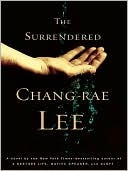
The Surrendered
کتاب های مرتبط
- اطلاعات
- نقد و بررسی
- دیدگاه کاربران
نقد و بررسی

Starred review from October 26, 2009
Lee's masterful fourth novel (after Aloft
) bursts with drama and human anguish as it documents the ravages and indelible effects of war. June Han is a starving 11-year-old refugee fleeing military combat during the Korean War when she is separated from her seven-year-old twin siblings. Eventually brought to an orphanage near Seoul by American soldier Hector Brennan, who is still reeling from his father's death, June slowly recovers from her nightmarish experiences thanks to the loving attention of Sylvie Tanner, the wife of the orphanage's minister. But Sylvie is irretrievably scarred as well, having witnessed her parents' murder by Japanese soldiers in 1934 Manchuria. These traumas reverberate throughout the characters' lives, determining the destructive relationship that arises between June, Hector and Sylvie as the plot rushes forward and back in time, encompassing graphic scenes of suffering, carnage and emotional wreckage. Powerful, deeply felt, compulsively readable and imbued with moral gravity, the novel does not peter out into easy redemption. It's a harrowing tale: bleak, haunting, often heartbreaking—and not to be missed.

February 15, 2010
The odyssey of a Korean War refugee becomes first the subject of, then a haunting overture to, the award-winning Korean-American author's fourth novel (Aloft, 2004, etc.).
Lee's introspective and interrogatory novels seek the sources of their characters' strengths and weaknesses in their own, and their families' stories—nowhere more powerfully than in this exhaustive chronicle of three hopeful lives tempered in the crucibles of wars and their enduring aftermaths. In a patiently developed and intermittently slowly paced narrative that covers a 30-year span and whose events occur in four countries and on three continents, the entangled histories of three protagonists are revealed. We first encounter 11-year-old June Han, traveling with her twin siblings following the deaths of their parents toward safety with their uncle's family. June's willed stoicism and suppression of fear serve her well in extremity, but they will have a far different effect on her later life—shaped when she is rescued by American G.I. Hector Brennan (himself in flight from the memory of a painful loss). Hector brings June to Sylvie Tanner, a minister's wife who runs an orphanage (and whose own demons owe much to the savagery of history in another place and another time). Each character's past, motivations and future prospects are rigorously and compassionately examined, as the author follows them after the war. In its ineffably quiet way, there really is something Tolstoyan in this searching fiction's determination to understand the characters specifically as members of families and products of other people's influences. The characterizations of Hector and Sylvie are astonishingly rich and complex, and the risk taken in depicting the adult June as the woman readers will hope she would not become is triumphantly vindicated.
A major achievement, likely to be remembered as one of this year's best books.
(COPYRIGHT (2010) KIRKUS REVIEWS/NIELSEN BUSINESS MEDIA, INC. ALL RIGHTS RESERVED.)

Starred review from November 15, 2009
June Singer is a middle-aged Korean woman living in the United States and dying of cancer, but before she dies, she wants to accomplish two things: find her son, who is drifting around Italy, and make a redemptive pilgrimage to the Chapel of Bones. She enlists the unwilling help of Hector, her son's father, whom she hasn't seen since the 1950s, when she was a child in a Korean orphanage and Hector was an ex-soldier working as the handyman. Throughout June and Hector's painful journey, we learn about the Tanners, the couple who ran the orphanage; Sylvie Tanner's childhood as a daughter of missionaries who were slain in front of her; the possessive love that June and Hector had for Sylvie; and the resulting calamity that has haunted them their whole lives. VERDICT This is a completely engrossing story of great complexity and tragedy. Lee's ("Aloft") ability to describe his characters' sufferings, both physical and mental, is extraordinarily vivid; one is left in awe of the human soul's ability to survive the most horrific experiences.Joy Humphrey, Pepperdine Univ. Law Lib., Malibu, CA
Copyright 2009 Library Journal, LLC Used with permission.

Starred review from February 15, 2010
Life was too fearsome, learns Hector, an American of problematic good looks and miraculous physical invincibility who unwillingly abets in the deaths of his loved ones. Hectors suffering turns mythic when he enlists to fight in Korea, then stays to work at an orphanage, where his fate becomes entwined with that of young June, who arrives alone and starving after trying valiantly to save her younger siblings. Seeking sanctuary, both damaged souls instead are tormented by love for Sylvie, the directors beautiful wife, herself severely marked by the murders of her Good Samaritan parents by the Japanese in Manchuria. With his signature empathy and artistry, Lee links emotionally complex events at the orphanage with equally nuanced and devastating encounters three decades later, when June, a flinty New York antiques dealer dying of cancer, reunites with Hector, a brooding janitor. Profoundly committed to authenticity, and in command of a remarkable gift for multidimensional metaphors, Lee dramatizes the guilt and mystery of survival in scenes of scalding horror and breathtaking beauty. With the war chronicle that engendered the Red Cross, The Memory of Solferino (1862), by Nobel Peace Prize winner J. H. Dunant, as his polestar, Lee has created a masterpiece of moral and psychological imagination unsparing in its illumination of the consequences of bloodshed and war.(Reprinted with permission of Booklist, copyright 2010, American Library Association.)

























دیدگاه کاربران